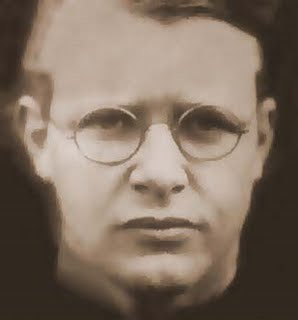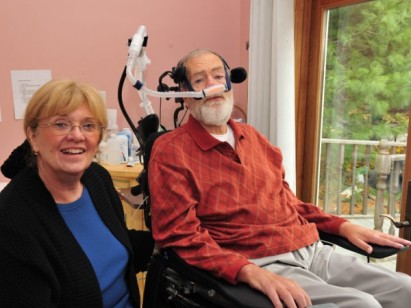The Perseverance of the Few
A Sermon preached by The Rev. Jeffrey A. Geary at the White Plains Presbyterian Church on the First Sunday After Christmas, New Year’s Day, January 1, 2017
Hebrews 10: 19-25
In ancient times and cultures the New Year was a great feast of rebirth. These days, instead of rebirth, we do “resolutions.” But the resolve involved in making and keeping them is another story.
It’s somewhat trite to talk about resolutions. Everybody makes them. Everybody breaks them. My wife was at the gym yesterday, and the line was out the door with people signing up for a new gym memberships. We already know that most of them are only making a financial donation to the gym.
But if you were looking for a resolution to make this year, a REAL resolution – look no further than our New Testament reading today.
So, friends, we can now—without hesitation—walk right up to God, into “the Holy Place.” Jesus has cleared the way by the blood of his sacrifice, acting as our priest before God. The “curtain” into God’s presence is his body. So let’s do it—full of belief, confident that we’re presentable inside and out. Let’s keep a firm grip on the promises that keep us going. God always keeps God’s word. Let’s see how inventive we can be in encouraging love and helping out, not avoiding worshiping together as some do but spurring each other on, especially as we see the big Day approaching.
I have read this from The Message, Gene Peterson’s presentation of the Bible in contemporary language because it is, frankly, easier to understand than your pew Bibles. In Gene’s translation, the first verses sound almost like an invitation to communion; the body and blood of Christ promise to usher us into God’s presence. “So let’s do it!” writes the author. Let’s claim those promises, of a new day, and a new name, and new song, and a new way. The author of Hebrews reminds us that if we take up this resolution together, we can count on God’s help. That’s what he means when he says, God is faithful.
And here is the resolution: Let’s see how inventive we can be in encouraging love and helping out, and spurring each other on.
How inventive can you be in encouraging love and helping out?
Because we’ll need to be able to count on one another in the days ahead.
*****
The letter to the Hebrews was written as a word of encouragement for a people of God who are hard pressed by persecution. The author wants them to know that God is and will be faithful, though the people cannot see how right now. The author wants them to know that the faithfulness that God requires can be costly. He is clear that the community to which he writes has suffered all forms of public ridicule, physical abuse, imprisonment and theft, though he notes ominously, no one has been killed… yet. While he counsels endurance, he does not glorify or justify unjust suffering. He simply promises that God is with us as we suffer. Should we ever get confused, or doubt this, we have only to look to Jesus, “the pioneer and perfector of our faith, who endured the cross, disregarding its shame, and has taken his seat at the right hand of the throne of God.”
We don’t really know anything else about the author or the community to which he is writing. It is possible that what the author calls their “hard struggle with sufferings” in chapter 10 verse 32, refers to the expulsion of the Jewish community from Rome. In the year 41, the Emperor Claudius rounded up all the Jews in the Capitol city and its environs and deported them. Paul’s coworkers in Corinth, the husband and wife team of Prisca and Aquila, had suffered in this way. That’s why they were in Corinth. And when the author says that in the current struggle no has died, yet, it is probable that he is referring to the persecution of Christians under the tyrannical Nero, around the time the letter was being written, a persecution that took the lives of both Peter and Paul and countless others. Whatever the case, in the past, they had stood strong.
But recall those earlier days when, after you had been enlightened, you endured a hard struggle with sufferings, sometimes being publicly exposed to abuse and persecution, and sometimes being partners with those so treated. For you had compassion for those who were in prison, and you cheerfully accepted the plundering of your possessions, knowing that you yourselves possessed something better and more lasting. Do not, therefore, abandon that confidence of yours; it brings a great reward. For you need endurance, so that when you have done the will of God, you may receive what was promised.
But obviously, some had doubts. That’s why we have the letter. Some were quietly slipping away from the community before things got rough, counting the cost of being “partners with those ill treated” and finding it too high. Others, seeing the same writing on the wall that caused the author to say no one had been killed “yet,” wondered just what hope could mean in a seemingly hopeless situation.
How do we hope against hope? What does it mean to persevere?
I’m currently reading a biography of Dietrich Bonhoeffer by Charles Marsh to help me think about how the church can resist tyranny. In 1933, Bonhoeffer was an academic professor and newly licensed preacher, who found himself leading the churches in resistance to Hitler. As the majority of the church welcomed the dictator as “Jesus Christ for Germany,” Bonhoeffer helped found and nurture the Confessing Church, a faithful church, a church in resistance. For a while he led an underground seminary for students who wished to learn spiritual practices to help them persevere in the face of persecution and to prepare them for the church of the future. When that was forcibly closed, and several of the students arrested, Bonhoeffer created a school-without-walls that paired students with faithful pastors who could mentor them. When that was discovered, he created a discipline of prayer that could be practiced covertly. Bonhoeffer was endlessly inventive in spurring others on.

I tell you this because the Confessing Church has for a long time been for me a model of perseverance against the powers of death. And yet, when the going got tough and the price became high, most capitulated. When an oath of allegiance to Hitler was demanded of all clergy, on pain of imprisonment, most signed. And so, writes Marsh,
the perseverance of these few (writes Marsh) would finally be overshadowed by the expediency of the many. The difficulty of holding out was not a new one in Christian history: “I shall strike the shepherd, and the sheep of the flock will be scattered abroad.” When ministers of the Confessing Church met on June 11, 1938. Bonhoeffer was depressed to learn that the majority had taken the oath of allegiance to Hitler: 60% in the Rhineland, 70% in Brandenburg, 78% in Saxony, 80% in Pomerania, 82% in Salesia, 89% in Grenzmark.
The perseverance of these few would finally be overshadowed by the expediency of the many. The few pastors of the confessing church who remained faithful to Christ, suffered the high cost of discipleship – detention, martyrdom, exile, confiscation; Bonhoeffer himself was sent to a concentration camp and executed. I tell this story because when we, in this time and place, resolve to stand with any who are vulnerable, we must stand with the full measure of our strength, with the full measure of our commitment. Standing with those who are vulnerable cannot be a nice slogan – these cannot be PR words whose content is not backed up by action. The stakes are too high. So let’s see how inventive we can be in encouraging love and helping out, and spurring each other on.
Some of us hear these words from Hebrews and we think also of our personal lives – the challenges we face – and we wonder will we be able to stand up to what lay ahead? And we worry, will anyone stand with us? Will we be able to persevere?
When I think of these questions of perseverance, I think of my friend Chris Pendergast. In 1993, Chris was diagnosed with ALS, or Lou Gehrig’s disease. Doctors told him he had 2 to 3 years to live. Five if he was lucky. ALS is a progressive neurodegenerative disease that affects nerve cells in the brain and the spinal cord. These nerve cells control voluntary movements. As the disease progresses, patients lose their ability to move their arms, their legs, and eventually, to breathe. There is no cure.
Chris’s initial reaction was that he had received a death sentence, as indeed he had. So he chose not to waste a moment of the time he had left.
In 1998 Chris founded the Ride for Life, riding his electric scooter from Yankee Stadium to Washington D.C. over the course of 16 days in order to raise awareness of ALS. After three rides to Washington, Chris moved the Ride for Life to Long Island, making an annual trip from Montauk to Manhattan, ending at Yankee Stadium. And he invited others with ALS, and their families, to ride with him. Along the way Chris will stop at any school, community center or church that will have him to talk about ALS. That’s how we met. I used to have Chris come each year and speak with my junior high youth group about courage and perseverance. Chris would tell them about “meeting the challenges of life regardless of the problem or difficulty. He would tell them to never give up and never quit – try to find a solution rather than complaining.” And his message was compelling because they could see him living it.

Chris brought hope to a situation that appeared hopeless. Patients ride with him to make a difference, if not for themselves, then for others. The annual ride brings hope for a cure, sure, but it involves patients in actively caring for one another, it builds community, it raises awareness, and it brings out heroic courage in those facing a slow death.
The Ride for Life is now in its 20th year, and Chris is still with us. Despite the progression of his illness – today he has no use of his arms or legs, and uses a feeding tube and a noninvasive ventilator – Chris still makes the entire ride each year. It’s physical exhausting, like running a marathon, but he doesn’t let the challenges of the ride stop him from his work promoting ALS awareness. He perseveres, because he believes that God had a plan for him, and that was to use his time to speak for so many ALS patients and to advocate for all of those families who are busy taking care of their loved ones who are battling ALS.[1]
We can resolve this day to make our personal challenges the locus for despair or love, for closing down or for opening up, for retreating from help to asking for help and inspiring us to help one another. In our personal lives, let us resolve this day to persevere.
Today is the first day of the new year. And you will see that the candle of fellowship we lit on Christmas Eve is burning this day and will burn the year long. So let’s see how inventive we can be in encouraging love and helping out, and spurring each other on.
[1] I have borrowed liberally from a Riverhead Patch article by Ashley Pinciario from a few years ago in telling Chris’s story. http://patch.com/new-york/riverhead/after-17-years-chris-pendergast-still-riding-for-life

Trackbacks